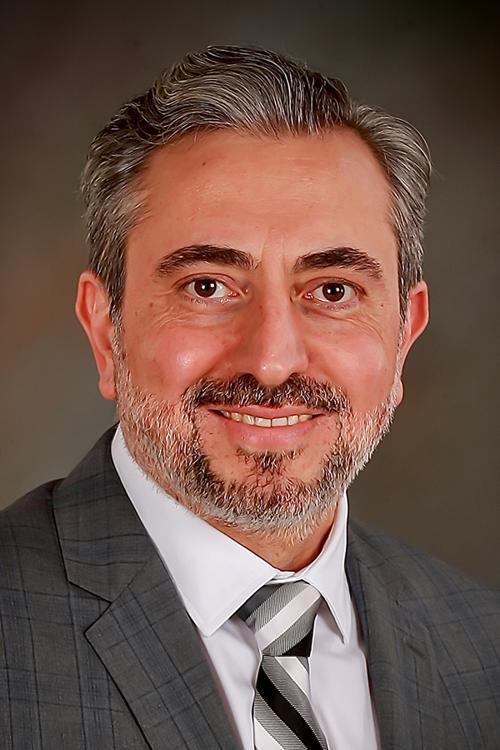The American Cancer Society estimates that 234,580 new cases of lung cancer will be diagnosed this year in the United States. That includes 7,700 of our friends and neighbors here in Georgia.
While lung cancer often gets overshadowed by other forms of cancer, it is incredibly common. In fact, it’s the second most common form of cancer in both men and women—behind breast cancer in women and prostate cancer in men.
How much do you know about this common condition? Read on as we take a few minutes to break down the facts about lung cancer.
Who’s Affected by Lung Cancer?
Lung cancer can affect anyone of any age, but it’s more common among certain groups of people. Risk factors for lung cancer include:
- Being age 65 and older
- Being a current or past smoker
- Being exposed to carcinogens such as asbestos, arsenic, nickel, soot, or tar in the work environment
- Being exposed to radiation through radiation therapy to the breast or chest, imaging tests, or radon
- Being exposed to secondhand smoke
- Having a family history of lung cancer
- Having HIV
- Living in a highly polluted environment
Of these risk factors, smoking is the single biggest risk factor. People who smoke cigarettes are up to 30 times more likely to develop lung cancer than those who do not smoke.
What Symptoms Does Lung Cancer Cause?
In some cases, particularly in early stages, lung cancer may not cause any noticeable symptoms. But those who have lung cancer may experience a wide variety of symptoms, including:
- Unexplained cough
- Coughing up bloody mucus
- Chest discomfort
- Difficulty breathing
- Difficulty swallowing
- Excessive fatigue
- Facial or neck swelling
- Hoarseness
- Loss of appetite
- Weight loss with no known cause
- Wheezing
If you experience any of the symptoms outlined above, particularly if they linger, talk with your medical provider about how you’re feeling. Many of these symptoms can be caused by less-serious conditions, but it’s always better to have symptoms checked out.
Who Should Have Lung Cancer Screenings?
You know you should receive regular screenings for breast cancer, colorectal cancer, and even skin cancer. But what about lung cancer?
While lung cancer isn’t the most common type of cancer, it is the most common cause of cancer death, causing nearly 25% of all cancer-related deaths. Since the condition doesn’t always cause symptoms, it can be important for those at the highest risk to be screened.
Lung cancer screenings are specifically targeted at high-risk individuals, not the general population. According to the U.S. Preventive Services Task Force, annual screening is recommended only for people who meet all three of these criteria:
- Age between 50 and 80 years
- Smoking history of 20 pack-years or more
- Currently smoke or have quit within the past 15 years
A pack-year is a way to measure lifetime tobacco exposure. One pack-year equals smoking one pack (20 cigarettes) daily for one year. For example, a 20 pack-year history could mean:
- Smoking one pack daily for 20 years, or
- Smoking two packs daily for 10 years
Both scenarios represent the same cumulative exposure: 20 pack-years. Calculate your pack-year.
Lung cancer treatment options
Treatment plans depend on the type, stage, and individual health factors. Below are the primary treatments for lung cancer:
Surgery
For early-stage lung cancer, surgery can remove the tumor and offer the best chance for a cure. Types of surgeries include:
- Lobectomy: Removing one lobe of the lung.
- Pneumonectomy: Removing an entire lung.
- Segmentectomy or Wedge Resection: Removing part of a lobe.
Radiation Therapy
This treatment uses high-energy rays to target and kill cancer cells. It’s often combined with other treatments, like chemotherapy or surgery, to maximize effectiveness.
Chemotherapy
Chemotherapy involves medicines that destroy cancer cells or stop them from growing. It’s used:
- After surgery to kill any remaining cancer cells.
- For advanced cancer to shrink tumors and relieve symptoms.
Targeted Therapy
Targeted drugs focus on specific changes in cancer cells. These treatments work well for patients with certain genetic mutations.
Immunotherapy
This newer treatment boosts the immune system to fight cancer. It’s especially effective for some advanced lung cancers.
Palliative Care
Palliative care focuses on improving quality of life by managing symptoms and side effects of treatment.
Next Steps
If you meet the screening criteria, the lung cancer screening process is straightforward and non-invasive. The test uses low-dose computed tomography (LDCT), which provides detailed images of your lungs while minimizing radiation exposure. During the scan:
- You lie still on a table that slides through a donut-shaped machine
- The CT scanner rotates around you, taking multiple X-ray images
- No injections or special preparations are needed
- The entire procedure typically takes less than 5 minutes
While the scan itself is quick and painless, it’s important to note that like any screening test, LDCT can sometimes detect findings that require additional follow-up. Your healthcare provider will discuss the results with you and recommend any necessary next steps.
Wondering whether you could benefit from a lung cancer screening? Get the details and find out how to schedule an appointment on our website.
If you or a loved one have been diagnosed with lung cancer, the Cancer Services team at NGMC is here to help. NGMC has a coordinated team approach, among many specialties, working together to give you the best options for individualized care. Call 770-525-5349 or visit our Cancer Services page to learn more.
This article was originally published Nov. 18, 2022.



